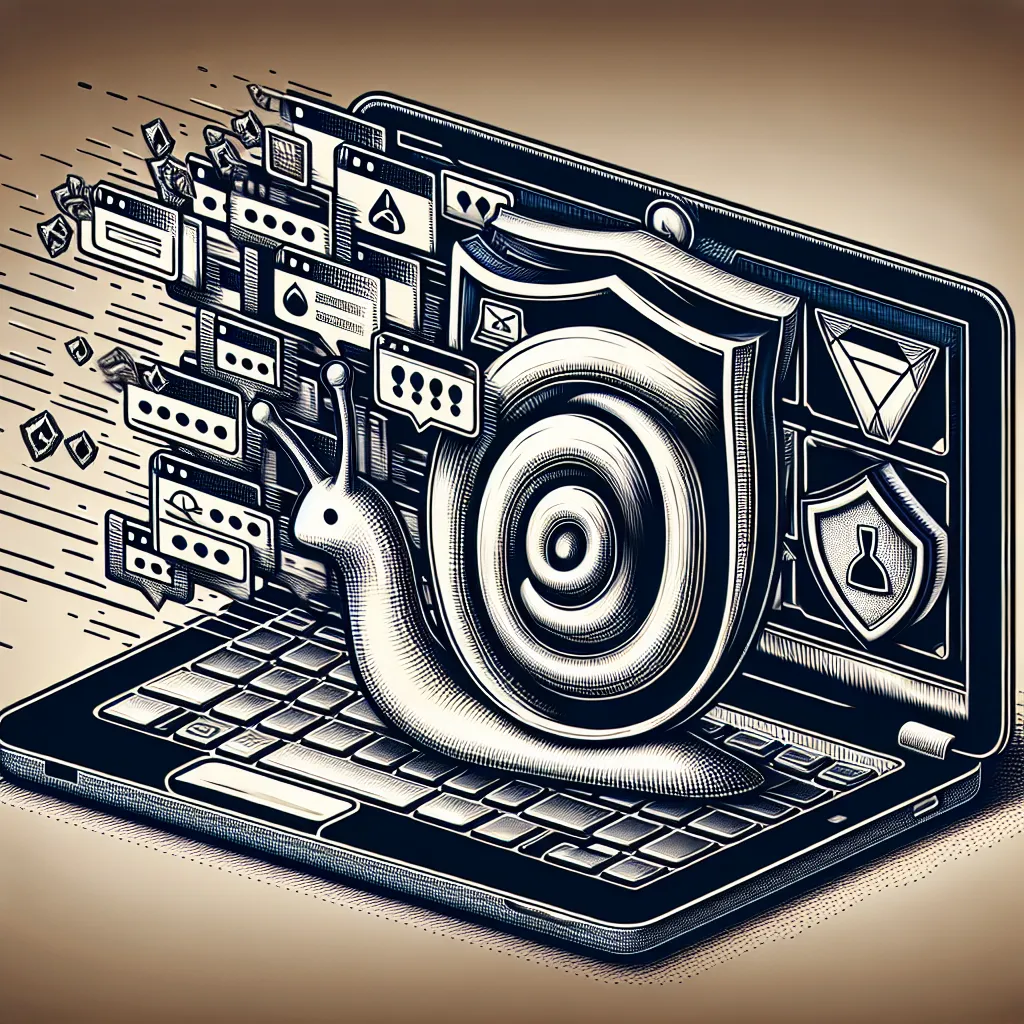Have you ever felt like your laptop is acting a bit off, as if it has a mind of its own? You might notice sluggish performance, unexpected pop-ups, or even mysterious changes in your settings. It’s almost like your laptop has caught a virus. But how can you be sure? We’re here to help you figure that out, without diving into the complex world of tech jargon. Let’s explore simple ways to tell if your laptop has a virus and what you can do about it.

Signs Your Laptop Might Have a Virus
Unusual Slowness
One of the first telltale signs of a virus is a sudden decrease in your laptop’s performance. Is your laptop taking longer to boot up or load applications? It might be due to malicious software hogging resources.
Unexpected Pop-Ups
Adware often manifests as annoying pop-ups. If you’re seeing more ads than usual, it could be a sign that something isn’t right. Do these pop-ups appear even when you’re offline? That’s a red flag!
Strange Emails and Messages
A virus can hijack your email account and send spam to your contacts. Have friends or colleagues mentioned receiving odd emails from you? Check your “Sent” folder for emails you didn’t send.
Overheating and Loud Fans
A virus might run processes that cause your laptop to overheat or your fans to work overtime. Does your device feel hot to the touch or sound like a jet engine taking off? This could indicate malware activity.
How to Confirm a Virus Infection
Check for Unfamiliar Programs
Navigate to your laptop’s list of installed programs. Do you see anything you don’t recognize? Malicious software often masquerades as legitimate apps.
Monitor Network Activity
Use the Task Manager (Windows) or Activity Monitor (Mac) to check network usage. Is there unexplained data usage? This can be a sign of malware sending information to external servers.
Run a Full System Scan
Use a reliable antivirus program to perform a comprehensive scan of your laptop. Does the scan detect any threats? If so, take immediate action to quarantine and remove them.
What to Do If Your Laptop Has a Virus
Disconnect from the Internet
First, disconnect from the internet to prevent the virus from spreading or sending data. Simply turn off Wi-Fi or unplug your Ethernet cable.
Boot into Safe Mode
Booting in Safe Mode can help prevent the virus from loading. On Windows, restart your laptop and press F8. On Mac, hold the Shift key during startup.
Remove Suspicious Programs
In Safe Mode, go to your Control Panel or System Preferences and uninstall any suspicious programs. Be cautious and only remove software you’re sure is malicious.
Restore Your System
If you have backups, consider restoring your system to an earlier state. Choose a backup from a time before the issues started. This can help undo some damage.
Preventing Future Infections
Keep Software Updated
Regular updates patch vulnerabilities that viruses exploit. Set your system to update automatically.
Use a VPN
A VPN like Forest VPN can provide an extra layer of security by encrypting your internet connection. This helps keep your data safe from prying eyes.
Be Wary of Phishing Scams
Don’t click on links or download attachments from unknown sources. Always verify the sender before opening emails.
Install Reliable Security Software
Ensure you have a trustworthy antivirus installed and keep it updated. Regularly run scans to catch threats early.
Summary
Detecting a virus on your laptop doesn’t require a degree in computer science. By keeping an eye out for unusual behavior and taking proactive steps, you can protect your device and data. Remember, prevention is key. With vigilant practices and tools like Forest VPN, you can maintain a secure digital environment. Stay safe and surf wisely!
How to Tell If Your Laptop Has a Virus
Signs of Infection
- Slow Performance: If your laptop suddenly runs slowly, it could indicate a virus.
- Frequent Pop-Ups: Unexpected ads or warnings may signal adware.
- Unfamiliar Programs: Check for unknown applications in your installed programs.
- Security Software Issues: If your antivirus is disabled or malfunctioning, that’s a red flag.
What to Do
- Run a full system scan with reliable antivirus software.
- Disconnect from the internet to prevent further damage.
- Consider using Forest VPN to secure your connection and protect your data from potential threats.
Stay safe online! For robust protection, try Forest VPN today.
FAQs on How to Know if Your Laptop Has a Virus
What are common signs that my laptop has a virus?
Common signs include unusual slowness, unexpected pop-ups, strange emails being sent from your account, overheating, and the presence of unfamiliar programs running in the background.
How can I confirm if my laptop is infected with a virus?
You can confirm a virus infection by checking for unfamiliar programs in your installed applications, monitoring network activity for unexplained data usage, and running a full system scan with reliable antivirus software.
What should I do if I suspect my laptop has a virus?
If you suspect a virus, disconnect from the internet, boot your laptop in Safe Mode, remove suspicious programs, and consider restoring your system to an earlier state if you have backups.
How can I prevent future virus infections on my laptop?
To prevent future infections, keep your software updated, use a VPN for secure browsing, be cautious of phishing scams, and install reliable security software that you regularly update and scan with.
Can my laptop get viruses from simply visiting a website?
Yes, simply visiting a compromised or malicious website can lead to automatic downloads of malware without your knowledge, which is why it’s crucial to be cautious and use protective measures.
